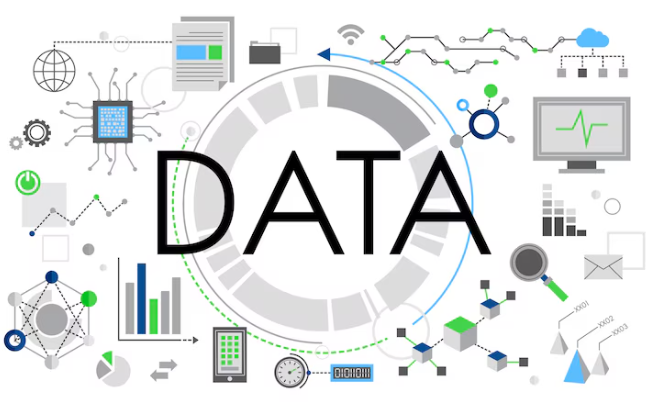
About Course
The Data Science course aims to provide a comprehensive introduction to the field, covering the essential concepts, techniques, and tools used in data analysis and machine learning. The course is designed for beginners and intermediate learners, with hands-on exercises and projects to reinforce learning.
What Will You Learn?
- Course Modules:
- Module 1: Introduction to Data Science
- - What is Data Science?
- - Definition and scope
- - Importance and applications
- - Data Science Process
- - Data collection
- - Data cleaning
- - Data analysis
- - Data visualization
- - Interpretation and reporting
- - Tools and Technologies
- - Overview of Python, R, SQL, and others
- - Introduction to Jupyter Notebooks
- Module 2: Python for Data Science
- - Python Basics
- - Syntax and data types
- - Control structures (loops, conditionals)
- - Functions and modules
- - Libraries for Data Science
- - NumPy: Numerical computing
- - Pandas: Data manipulation
- - Matplotlib and Seaborn: Data visualization
- - Scikit-learn: Machine learning
- Module 3: Data Collection and Cleaning
- - Data Collection Methods
- - Web scraping
- - APIs
- - Databases
- - Data Cleaning Techniques
- - Handling missing data
- - Data normalization
- - Dealing with outliers
- - Data transformation
- Module 4: Exploratory Data Analysis (EDA)
- - Descriptive Statistics
- - Measures of central tendency (mean, median, mode)
- - Measures of dispersion (range, variance, standard deviation)
- - Data Visualization Techniques
- - Histograms, bar charts, and box plots
- - Scatter plots and correlation matrices
- - EDA Case Studies
- - Practical examples and hands-on exercises
- Module 5: Probability and Statistics
- - Probability Theory
- - Basic concepts (independence, conditional probability)
- - Probability distributions (normal, binomial, Poisson)
- - Statistical Inference
- - Sampling methods
- - Hypothesis testing
- - Confidence intervals
- Module 6: Machine Learning Basics
- - Introduction to Machine Learning
- - Supervised vs. unsupervised learning
- - Overview of algorithms
- - Supervised Learning
- - Linear regression
- - Classification (logistic regression, decision trees, random forests)
- - Model evaluation metrics (accuracy, precision, recall, F1 score)
- - Unsupervised Learning
- - Clustering (k-means, hierarchical)
- - Dimensionality reduction (PCA, t-SNE)
- Module 7: Advanced Machine Learning
- - Ensemble Methods
- - Bagging and boosting
- - Random forests and gradient boosting machines
- - Support Vector Machines (SVM)
- - Theory and applications
- - Neural Networks and Deep Learning
- - Basics of neural networks
- - Introduction to deep learning frameworks (TensorFlow, Keras)
- - Model Deployment and Serving
- - Deploying machine learning models
- - Model monitoring and maintenance
- Module 8: Natural Language Processing (NLP)
- - Text Processing Techniques
- - Tokenization, stemming, and lemmatization
- - Bag of words and TF-IDF
- - NLP Applications
- - Sentiment analysis
- - Text classification
- - Named entity recognition
- - Introduction to NLP Libraries
- - NLTK, spaCy
- Module 9: Big Data Technologies
- - Introduction to Big Data
- - Definition and characteristics (Volume, Velocity, Variety)
- - Big Data Tools and Frameworks
- - Hadoop and MapReduce
- - Apache Spark
- - Data Processing with Spark
- - RDDs and DataFrames
- - Spark SQL and MLlib
- Module 10: Capstone Project
- - Project Planning and Design
- - Problem definition and goal setting
- - Data collection and preprocessing
- - Project Execution
- - Model development and evaluation
- - Results interpretation and reporting
- - Presentation and Review
- - Project presentation
- - Peer review and feedback
- Additional Resources:
- - Books and References
- - Recommended textbooks and papers
- - Online Courses and Tutorials
- - MOOCs and video tutorials
- - Communities and Forums
- - Joining data science communities for networking and support
- Assessment and Certification:
- - Quizzes and Assignments
- - Regular quizzes to test understanding
- - Hands-on assignments for practical experience
- - Final Exam
- - Comprehensive exam covering all modules
- - Certification
- - Certificate of completion for those who pass the final exam and capstone project
- This course content is designed to provide a solid foundation in data science, equipping students with the knowledge and skills needed to pursue a career in this rapidly growing field.
Student Ratings & Reviews

No Review Yet
